
Tech & Sci
22:32, 08-Jul-2017
With no science adviser, Trump turns his back to climate change
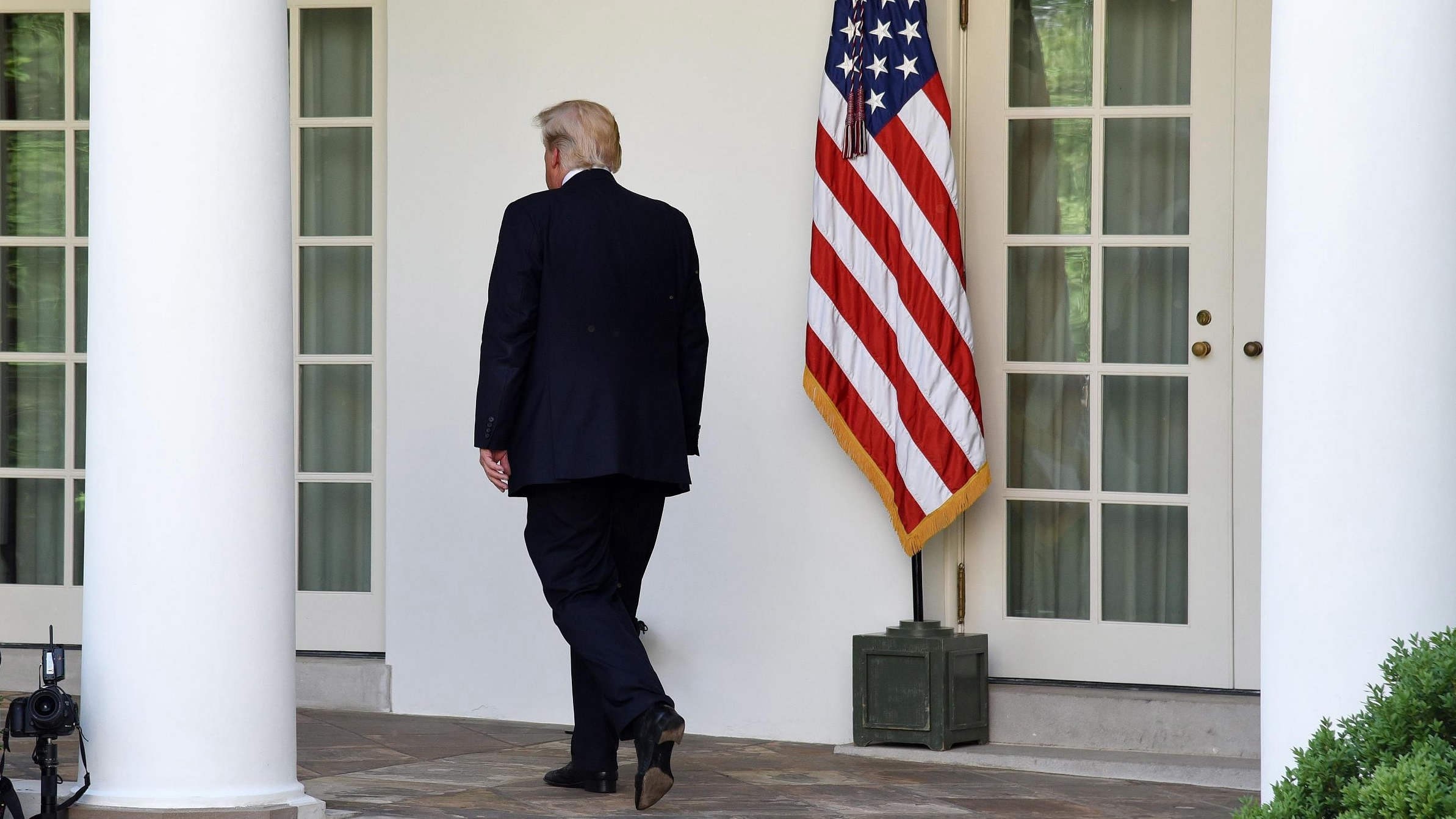
The science division of the White House Office of Science and Technology Policy (OSTP) is now reportedly out of staff since last Friday when the three remaining employees, holdovers from the previous administration, quit.
Their departure has given rise to concern over the lack of scientific leadership in the White House, which could hinder Washington's response to crises.
The division has no director and all senior science positions are vacant.
An administration official told the MIT Technology Review that the office has now 13 staff PhDs working primarily on science and national security issues. The OSTP is currently made up of 35 staffers. During the era of former president Barack Obama, the number was over 100.
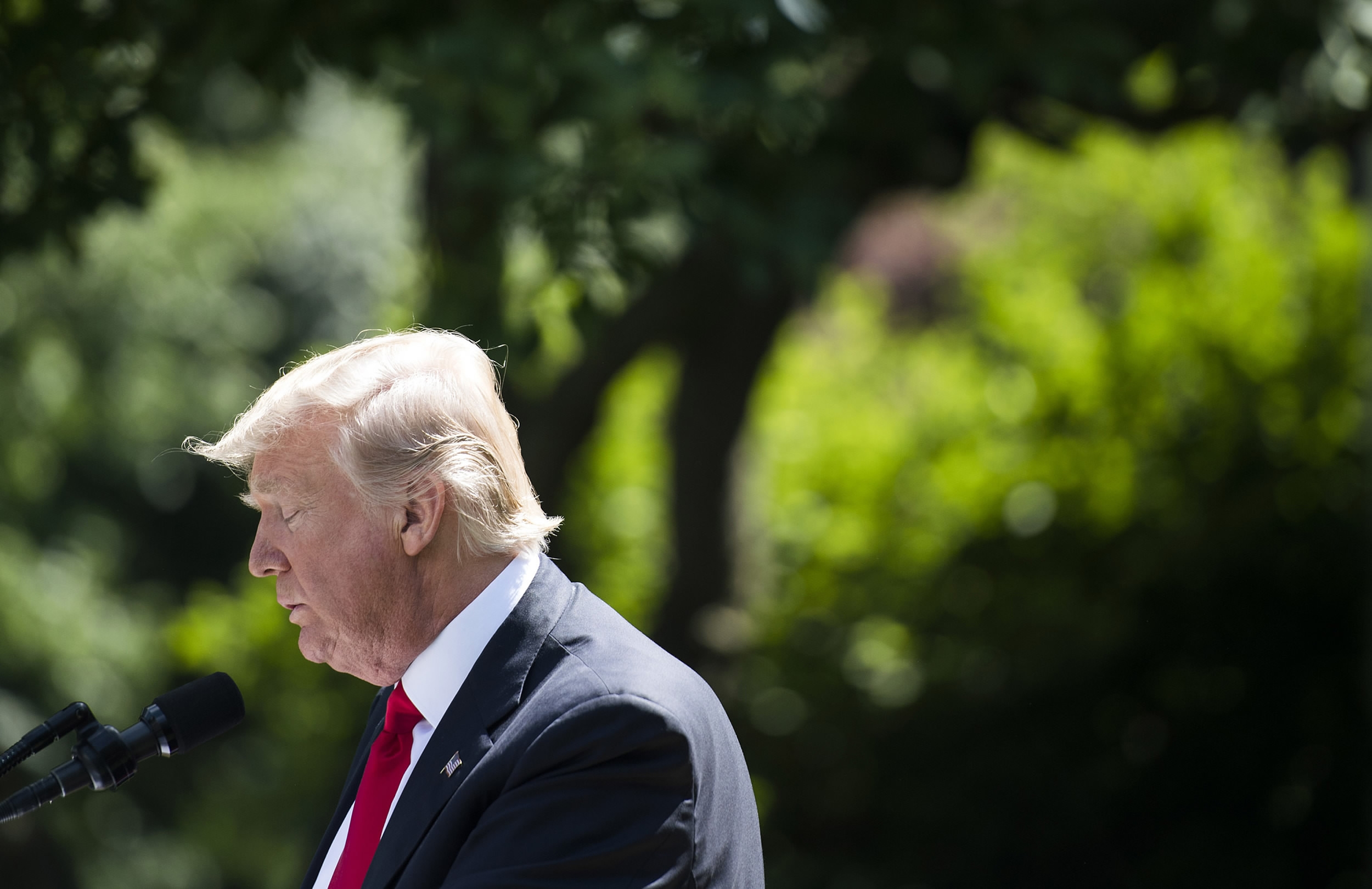
US President Donald Trump's announcement of US withdrawal from the Paris Agreement on June 1 sparked heated debate on whether the White House needs scientific leadership involved in decision making process. /VCG Photo
US President Donald Trump's announcement of US withdrawal from the Paris Agreement on June 1 sparked heated debate on whether the White House needs scientific leadership involved in decision making process. /VCG Photo
The OSTP was established in 1976 by the Congress to advise the president on science and technology policies.
The law that has created the OSTP compels the US president to name a science adviser, which Trump is yet to do in stark contrast with the long tradition that every other US president since Franklin Roosevelt has stuck to.
Many have urged Trump to get scientists involved in state level decision-making, to no avail so far.
"Until the OSTP is adequately staffed and the director position filled by a qualified, objective scientist who understands the difference between alternative news peddled on alt-right websites and legitimate well-vetted scientific facts, we fear that you will continue to be vulnerable to misinformation and fake news,” the Congress wrote in a letter to the White House in May.
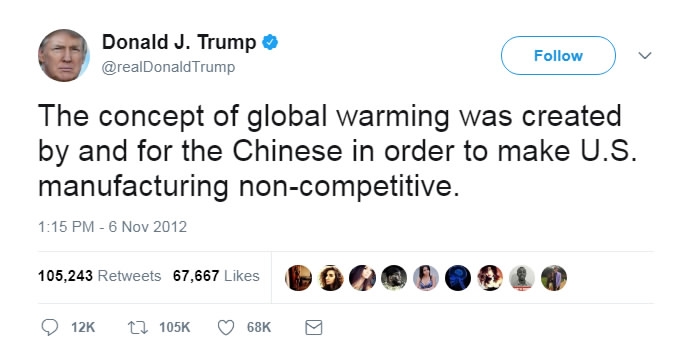
Trump has disregarded global warming as scientific truth in a tweet in 2012 accusing China as the creator of the concept.
Trump has disregarded global warming as scientific truth in a tweet in 2012 accusing China as the creator of the concept.
Trump's actions before taking office have shown little interest in and understanding of science, with his views on climate change and global warming examples of why a science adviser would come in handy.
In December last year, the then president-elect nominated climate change skeptic Scott Pruitt to run the Environmental Protection Agency. At the end of March this year, Trump signed an executive order to nix Obama’s climate change policies and re-fuel the coal industry. On June 1, Trump announced he was withdrawing the US from the landmark Paris Climate Agreement.
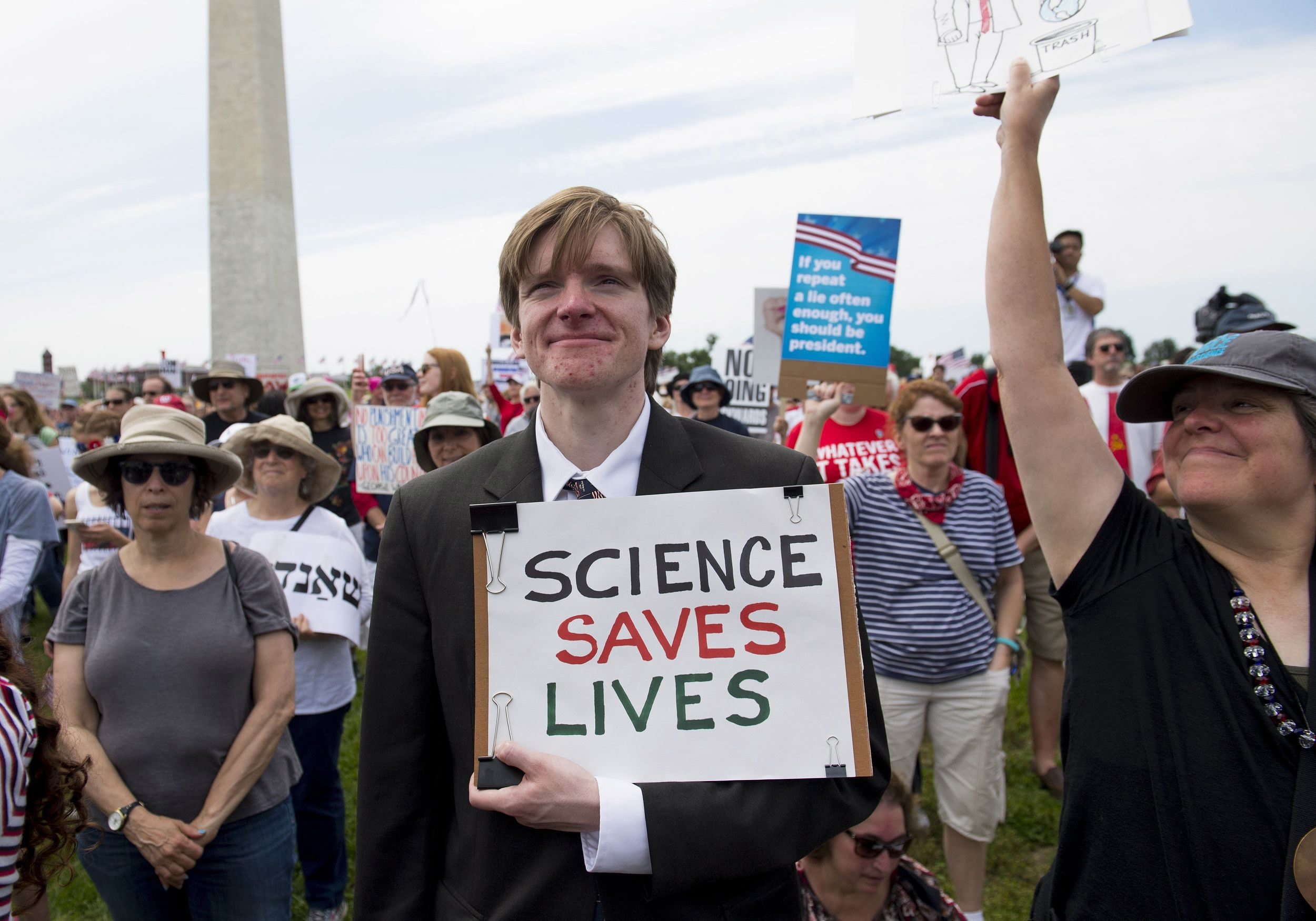
A rally against Trump's withdrawal from the Paris Agreement in Washington, DC on June 3. /VCG Photo
A rally against Trump's withdrawal from the Paris Agreement in Washington, DC on June 3. /VCG Photo
White House spokesperson Sean Spicer has previously sprung to the help of Trump by arguing that the president is not able to put climate change as his priority since other issues are more pressing.
"I think he (President Trump) understands – he does not believe, as I mentioned at the outset, that there is a binary choice between job creation, economic growth, and caring about the environment, and that’s what we should be focusing on,” Spicer answered ABC's question about whether Trump really believes that climate change is a "hoax" on the day the president signed an executive order dismantling Obama’s climate actions.
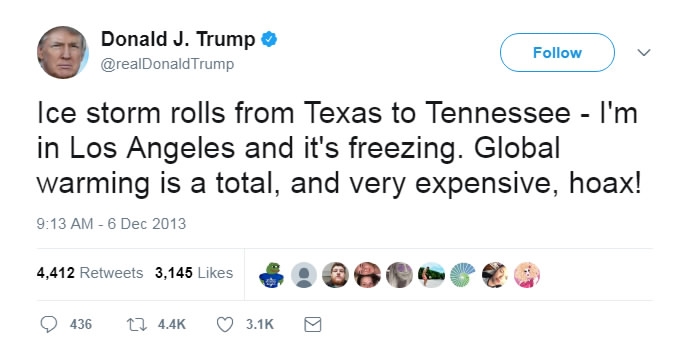
Trump has not been shy at expressing his belief that global warming is a hoax.
Trump has not been shy at expressing his belief that global warming is a hoax.
Trump's theory on climate change, albeit challenged by plenty, does have support from within the science circle.
David Gelernter, a computer science professor at Yale, has backed Trump's nonchalance about taking action to combat rising global temperatures.
“For human beings to change the climate of the planet is a monstrously enormous undertaking,” Gelernter told Yale Daily News days after meeting Trump in January.
"We’re in Connecticut, so we know about the ice age. The Earth’s climate oscillates, there’s no way to stop it. My first supposition is that if it’s getting warmer, then it’s a natural oscillation," he asserted.
11159km
Related stories:

SITEMAP
Copyright © 2018 CGTN. Beijing ICP prepared NO.16065310-3
Copyright © 2018 CGTN. Beijing ICP prepared NO.16065310-3